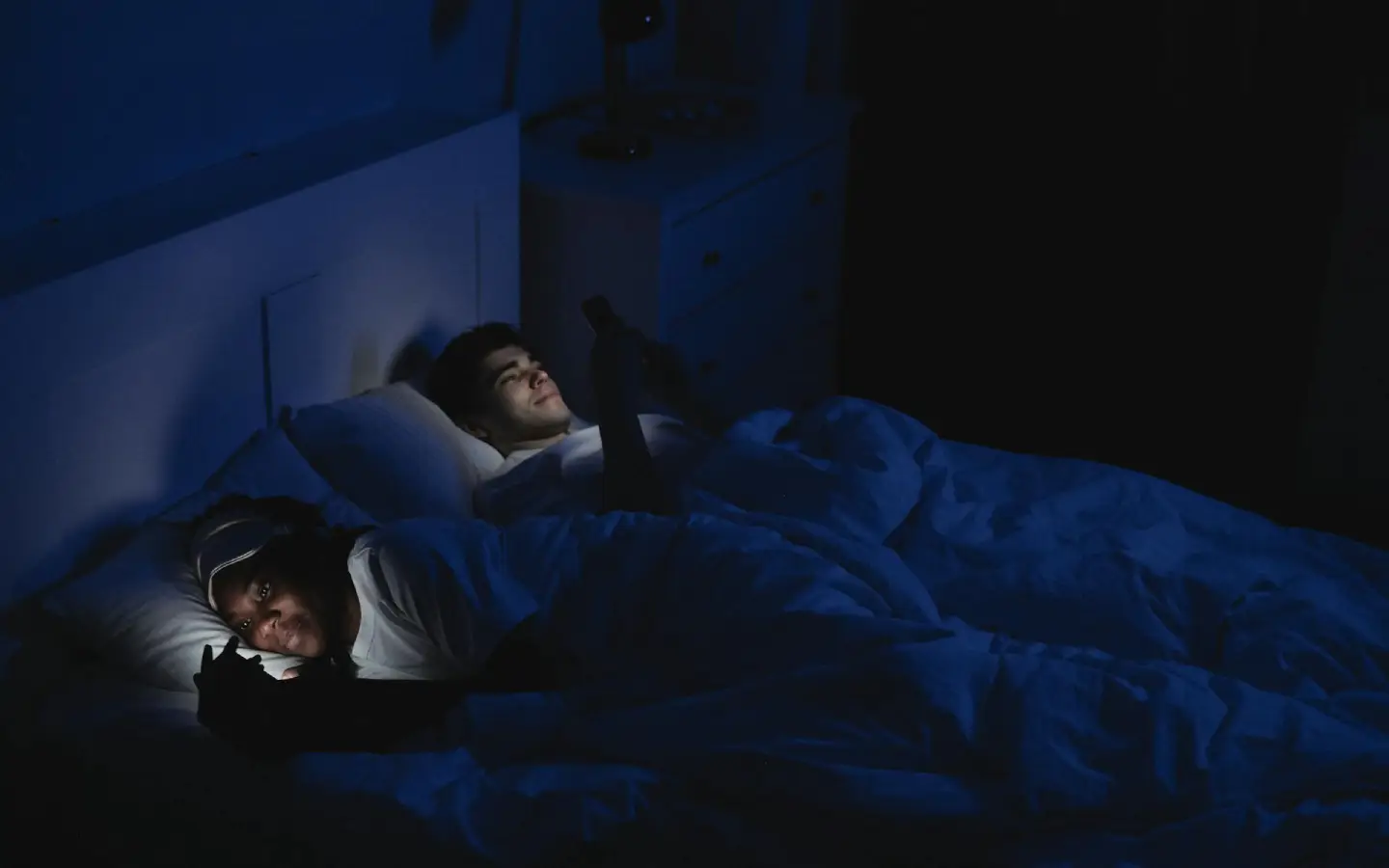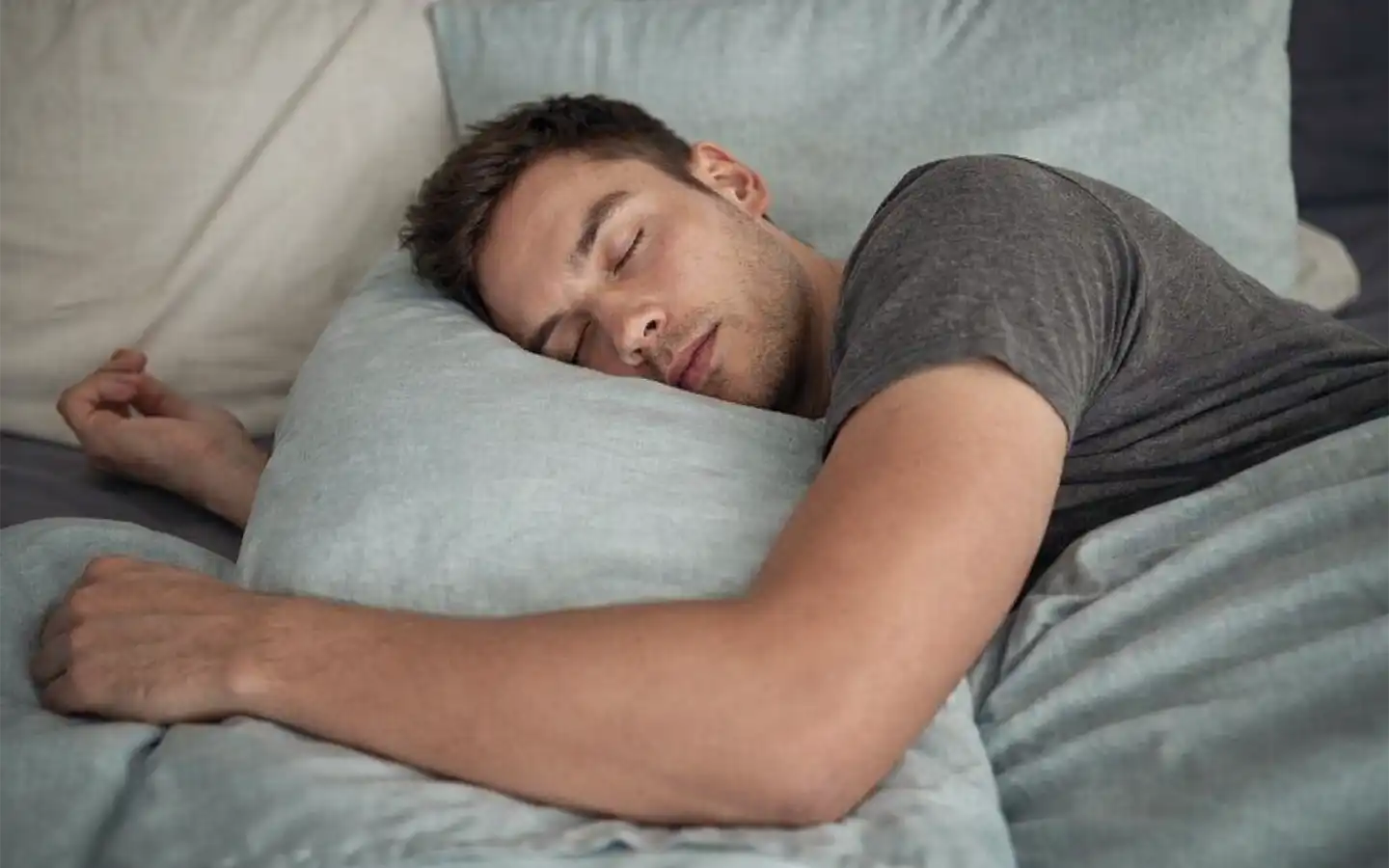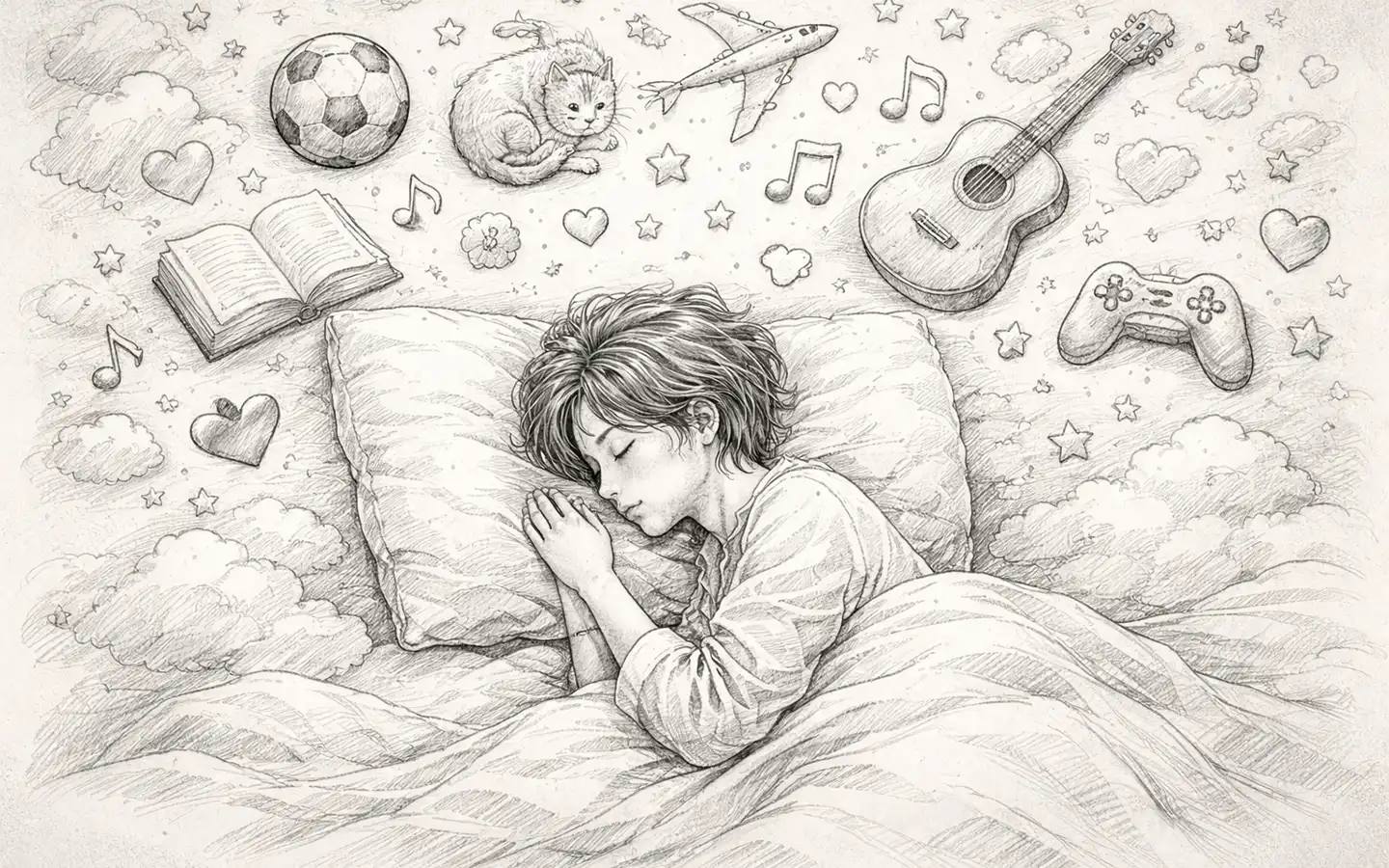October 7, 2025
Tired But Can’t Sleep? Here’s What Could Be The Cause
Sleep is supposed to be the time when we finally get to rest and recharge after a long day. But for most people, that’s not always the case. Being tired but can’t sleep is how we explain this frustrating experience.
Part of the problem is the modern way of living and how most of us spend our evenings. When the day is over, we watch TV, answer emails, or scroll on our phones until midnight, instead of letting the body gradually slow down and get ready for rest. These habits confuse the very systems that are meant to guide us into sleep.
In this article, we’ll look at what’s really happening to someone who is tired but can’t sleep, the most common reasons it happens, and what can break this cycle.
How Your Body Knows It’s Time to Sleep
Sleep depends on two systems working together.
The first is something called sleep pressure. From the moment you wake up, your brain uses energy to think, move, and function. As this happens, a chemical called adenosine builds up in the brain. The longer you stay awake, the more it accumulates, and the stronger the urge to sleep becomes. And when you finally rest, your brain clears it out during sleep, which resets the system for the next day.
The second is the circadian rhythm, also known as the body’s internal clock. For most people, it runs on a roughly 24-hour cycle and is mainly influenced by light and darkness. Darkness triggers the production of melatonin, and light suppresses it. When these two systems are functioning properly, falling asleep is natural and happens relatively fast. When they’re disrupted in some way, you can end up tired but can’t sleep.
Common Reasons You’re Tired But Can’t Sleep

1. Overthinking and Stress
Stress is one of the biggest reasons people struggle to sleep at night. When under pressure, the body releases cortisol and adrenaline, the same hormones that keep us alert during the day. That means you can be physically exhausted, but those signals tell the brain it’s not safe to switch off.
The worst thing about this is that the trigger doesn't need to be anything serious. Worrying about work, replaying a rough conversation with a partner in your head, or scrolling through negative news can be enough. Overthinking is another big reason. You lie down hoping to relax, but instead your mind remembers what happened during the day, makes plans for tomorrow, or jumps into endless what-ifs. This is usually one of the main reason why someone can feel tired but can’t sleep, but not the only one.
2. Circadian Rhythm Is Out of Sync
Your body clock doesn’t follow your watch. As we stated above, it listens to light and darkness. Are you staying on screens late into the night, keeping the lights on, or working irregular hours? This might be the reason why you can’t sleep even though you are tired.
One study found that exposure to regular room light before bed suppressed melatonin production in almost everyone tested and shortened its duration by about 90 min. That’s enough to keep someone awake well past midnight, even if they were ready to crash hours earlier.
3. Exhaustion and the “Second Wind”
Being very sleep deprived can actually make sleep harder. If you push past your natural bedtime, the body sometimes fights exhaustion by releasing more cortisol to keep you going. Parents see this in kids who get restless and silly when they are exhausted. Adults can experience this as a “second wind”, where the body is clearly tired but the brain feels switched on, making it harder to sleep on time.
4. Habits and Bedroom Environment
Some habits and setups make falling asleep almost impossible, even if a person feels tired:
- Caffeine too late in the day. Since caffeine can stay active in the system for 5-7 hours, that afternoon cup might still be keeping you up at midnight.
- Drinking alcohol in the evening. Alcohol may help you fall asleep faster, but it actually causes sleep fragmentation and reduced time spent in restorative sleep stages.
- Heavy meals. Eating a large meal close to bedtime keeps your digestive system active, raises body temperature, and can delay the sleep onset (the time it takes to fall asleep.)
- Using phones, tablets, TVs, or other electronic devices in the evening exposes you to blue light, which keeps the brain alert and delays melatonin release.
- Uncomfortable bedroom. A room that’s too hot, noisy, or bright makes it harder to relax and get ready to sleep.
[CTA_INSERT]
5. Mental Health Conditions
Some mental health conditions, such as anxiety, depression, and PTSD, can interfere with sleep.
Anxiety often causes overthinking and adds to stress. Depression disrupts sleep cycles, often leading to fragmented and unrefreshing nights.
Among other conditions worth mentioning, PTSD is common and strongly linked to sleep problems, especially because of hypervigilance and recurring nightmares. We covered this in more detail in a separate article, but in short, all these conditions make it harder to rest. So if you often feel tired but can’t sleep, it may be worth looking at the mental health side too.
6. Sleep Disorders and Medical Conditions
Sometimes the issue is not habits or stress but an underlying condition. Common ones include:
- Insomnia: Difficulty falling or staying asleep.
- Sleep apnea: Pauses in breathing that repeatedly disrupt deep sleep.
- Restless legs syndrome: Discomfort that makes you want to move your legs at night.
- Chronic pain or GERD: Physical discomfort that makes quality rest difficult.
If these symptoms show up often, it may point to a sleep disorder. You can read our article on the most common sleep disorders to learn more about them and how they’re usually treated.

How Kimba Can Help You Reclaim Sleep
Kimba was created for people who want better sleep without relying on pills or gimmicks. It’s the first personal limbic therapy system that works with your body’s natural rhythms. Unlike traditional diffusers, Kimba’s scent delivery is based on real-time biometric feedback from wearables. When your body shows signs of stress, Kimba automatically releases calming scents, helping your nervous system shift from alertness to relaxation.
How does this help someone who is tired but can’t sleep?
Most of the reasons we’ve covered, such as stress, hyperarousal, or irregular circadian rhythms, connect back to how the brain regulates safety and alertness. The limbic system, the brain’s emotional and survival center, responds directly to scent. In practice, this means:
- For people who are tired but can’t sleep, Kimba detects elevated stress signals and responds with calming pulses right when they are needed.
- For those who wake often, Kimba helps restore a sense of safety and makes it easier to drift back into sleep.
- For anyone dealing with restless nights or fragmented sleep, Kimba provides gentle, well-timed cues that remind the body it is safe to rest.
Kimba is not a replacement for medical care in conditions such as severe sleep apnea, but it can support other treatments and habits by keeping the nervous system in a sleep-ready state. The result is a smoother transition into rest, even on nights when tiredness alone is not enough.
Join our waitlist and be the first to get early access to Kimba!


Continue reading

Parasomnias and Why Sleep Becomes Unstable at Night

What is REM Sleep And How to Increase It Naturally


